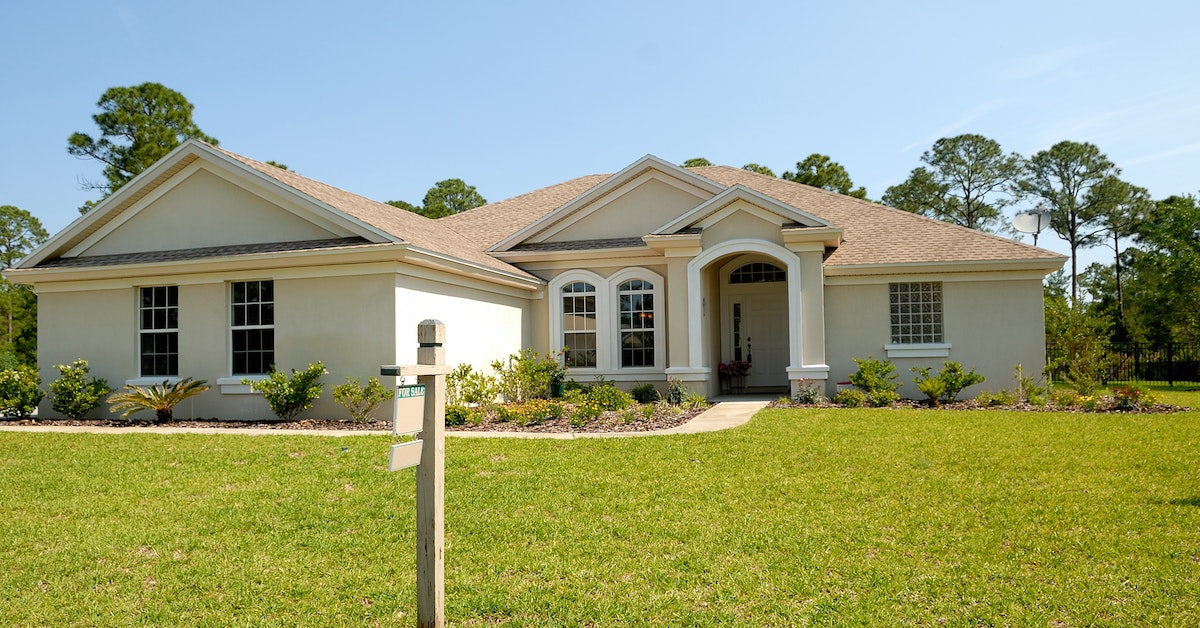The investment strategy of purchasing foreclosed homes is well-known even to novice real estate investors. However, many don't know about the ability to find homes that are destined to be foreclosed on if the homeowner is unable to make the payments that they owe. Learning how to find pre foreclosure listings for free can seem complicated at first, but there are a number of resources you can use to gain early access to details about these properties.
In many cases, buying a home that is in pre-foreclosure can be beneficial to all of the parties involved.
You are able to get a good deal on a property, the homeowner can avoid the negative repercussions of foreclosure, and the lender doesn't have to go through the costly process of legally foreclosing on a property.
Let's take a look at where you can find listings for pre-foreclosures without paying a dime.
The first step in the foreclosure process is known as pre-foreclosure. During this time, homeowners have a number of options they can pursue in order to stay in their homes before they are foreclosed.

When a homeowner doesn’t make their mortgage payments, the lender will issue what is known as a notice of default. This document is a legal notice that communicates that the legal process of foreclosure has been begun by the lender. At this time, they also notify the county recorder’s office or file a lawsuit, depending on the location.
At this point, the home is in the pre-foreclosure process.
Pre-foreclosure begins when a homeowner is ninety days behind on their home loan payments. The property still belongs to them at this point, but they can lose it to foreclosure if they don’t sell the house or work out an agreement with the lender before a certain time.
Lenders give homeowners ninety days to reinstate their loans by making the missing payments after they have sent a notice of default.
A notice of trustee sale is issued if the debt isn’t paid within ninety days. This notice tells the public that the property will be put up for sale at auction. Lenders are required to run newspaper ads for three weeks about the trustee’s sale, which will include the date and time of the sale as well as details about the property.
The process of pre-foreclosure can last anywhere between three and ten months. Until the property is officially foreclosed, though, the homeowner has the option to prevent it and maintain ownership of their home.
If the homeowner fails to pay back the money they owe, the bank repossesses the property. This is known as foreclosure.
The home will be put up for sale at a public auction and will go to the highest bidder. The new owner typically has a say over how long you can stay in the house after they get possession of it. Homeowners that don’t leave their property will be evicted.
There are three types of foreclosures, which are judicial foreclosure, power of sale, and strict foreclosure. Every state has its own particular process for foreclosures.
When you see pre-foreclosure listings, you are looking at the details of properties that are still owned by the homeowners. When you see foreclosure listings, however, the properties are owned by the lending institution.
Pre-foreclosure properties are not necessarily up for sale. At this point, homeowners ultimately decide whether they want to sell their property to avoid foreclosure if they cannot pay back what they owe.
There are a number of steps in the pre-foreclosure process. The first of these starts when a homeowner misses a monthly mortgage payment.

When three months of payments have gone unpaid, the homeowner is in default on their home loan. Unofficially, this is when the foreclosure process begins.
Lender’s typically try to avoid the foreclosure process because it is very expensive due to legal fees. This means that mortgage servicers are often willing to work with homeowners if the borrower notifies them as soon as they are facing issues making payments. Lenders might help to arrange a pause in payment known as a mortgage forbearance, which involves creating a payment schedule that works for both parties.
In most cases, lenders are prohibited from starting the foreclosure until the borrower is more than 120 days past due on their payments. If they are unable to repay what is owed or stick with an agreed-upon repayment schedule, however, the foreclosure phase of the process can begin.
When you're looking to invest in property, the last thing you want to do is spend money unnecessarily. A little later on, we'll look at a few ways you can find paid leads for pre-foreclosure listings, which you might find offers time savings that are well-worth the costs. If you're willing to do some legwork in order to save money, though, these free avenues for finding pre-foreclosures might help you find your next rental property.
Depending on where you are thinking about investing in pre-foreclosures, you might be able to learn about them from the local county court office. Though the regulations vary depending on the state, it isn’t uncommon for Notices of Default to be recorded with the county court. This means that you could learn about all of the properties that lenders have begun the legal foreclosure process on in the county.

To learn whether you can find pre-foreclosures using this method, contact the local county court office in the area that you are considering investing in. They’ll be able to tell you if their NOD filings are searchable by the public.
You might not have to physically go to the county court in order to look for pre-foreclosure listings. Sometimes, counties will provide online databases to the public.
To determine whether online records are available in the area you want to invest in, you can search the name of the county with search terms like “property data.” You can also look on the website for the county and see if they provide a link to an online records database.
When counties do offer this service, it isn’t uncommon for there to be features allowing you to filter your searches by document type or property. This can help you zero in on all of the pre-foreclosures that might be appealing to you.
If you are a licensed real estate professional, you likely have access to the Multiple Listing Service (MLS). This is one of the most obvious places to look for leads, as the MLS is a local database of all of the properties that are for sale. This service allows you to find active preforeclosure and foreclosure properties in addition to detailed information about the property.
Even if you aren’t a licensed agent, though, there are still ways to gain access to the MLS. You might choose to partner with a local real estate agent. In some areas, there are public MLS listings offered by regional MLS providers.
It might seem old-school, but your local newspaper can be a great place to find pre-foreclosure listings for free. Look in the legal notice section to find listings for properties in varying stages of foreclosure.

While the newspaper will list property details, there won’t be any specifications or pictures. Using the information provided, though, you can proceed with your research process. On top of that, you can use the property data in the listing to look up the name of the title company that recorded the notice of default and contact them for pre-foreclosure leads.
It’s worth noting, though, that title companies might only want to give you this information if you plan on using them during the closing on a pre-foreclosure property you purchase.
There are a number of online directories you can use to help find pre-foreclosure listings. On these sites, you can typically find quite a bit of data regarding properties in your area. These online directories also have a number of filtering features, letting you sort through listings easily to find the types of properties you’re interested in.
This method is one of the simplest ways to find pre-foreclosure leads, as you can access them from any device instantly. You don’t need a real estate license and using them doesn’t require any legwork.
That being said, you do have to watch out for information on online directories that is out-of-date or inaccurate. For this reason, it’s a good idea to corroborate your findings using other sources.
Not all online directories are free, but a number of them offer free trials to let you experiment with whether or not they will be useful in your search.
Here are some of the most popular online directories:
Both Reonomy and ProspectNow utilize machine learning and artificial intelligence to provide investment calculations and in-depth information. These tools can be used to help you find pre-foreclosure leads before other investors do, as they work to predict foreclosures in your area.
You can start a free account with Zillow and search the site for pre-foreclosures in your area. Here are the steps you’ll want to take to find pre-foreclosure listings:
Accessing pre-foreclosure information is free for people that have a free Zillow account. In some cases, homes listed under this category might already be scheduled for foreclosure auction.
You can also set up a Property Alert email with Zillow to help you know as soon as possible that knows when a property’s status changes. You can create Property Alerts from any home details page. You simply have to click “More” and then choose the option “Get updates on this home.”
When you’re a real estate investor, building a network of connections within the local real estate world should be a top priority. The more people you know that are in the know, the higher likelihood that you’ll get a great tip on a new pre-foreclosure listing.
You can also share the fact that you’re searching for preforeclosures with your family, friends, or your extended network on social media. You might just find that the people in your community that are facing foreclosure are not as many degrees of separation away from you as you might have expected. If someone you know knows someone that isn’t able to make their mortgage payments, you might be able to connect and come up with a deal that benefits all parties involves.
When you work with real estate wholesalers, you’re outsourcing the search to experienced professionals. With their own methods for finding listings, this can be a good way to find deals and leads.
You don’t have to pay wholesalers anything out of pocket, but the service isn’t entirely free. Wholesalers focus on finding under-market value properties and turning a profit by flipping the contract to a real estate investor.
Basically, real estate wholesalers will secure a contract at a discounted rate. Then, they will turn around and sell the contract for a marked-up price.
When you work with a wholesaler, you are paying more than you would if you found the property on your own. However, you’ll likely save quite a bit of time and energy because they have done the research and work for you. For some investors, paying more for a property in exchange for this service is well worth the cost.
One of the best ways to find wholesalers is by networking with local real estate professionals.
It might sound like a lot of work to write letters to homeowners, particularly in an age where you can find property data online from the comfort of your own home or office. However, this can be an effective way to find pre-foreclosure listings.
It’s important to remember that people that are facing foreclosure are likely dealing with a difficult life situation. No one wants to lose their home, and you’ll want to approach these individuals with compassion and sensitivity.
While you can use a template to write these letters, it’s a good idea to insert personalized information and focus on how you can provide a benefit to the homeowners.
There are a number of advantages to buying pre-foreclosed homes rather than those that have gone through foreclosure or properties that are listed on the traditional market.
When a homeowner is facing foreclosure, they are often motivated to sell their property. If they know that they aren’t going to be able to keep the home, selling it before the foreclosure process begins is often advantageous to them.
This is because the negative consequences of foreclosure reach beyond simply losing their place of residence. Foreclosures show up on a credit report and stay there for seven years after the date of the first missed payment. Not only will it lower their credit score, but it will also be viewed in a negative light by lenders. Foreclosure can make it difficult for people to purchase a house in the future, borrow money, or even rent an apartment.
For this reason, buying pre-foreclosures can be a win-win for everyone involved. Though the homeowner can’t keep their home, they are able to sell it on their own terms and avoid the negative repercussions of foreclosure.
When you invest in pre-foreclosure properties, the pool of interested buyers is much smaller than when you search for properties that are being sold through the traditional process. Many real estate agents like to stay away from pre-foreclosures and foreclosed properties.
As you likely know, location is key when it comes to investing in real estate. If you're hunting for a good place to invest in, take a look at our list of the best places to buy rental property.
Buying a house at a foreclosure auction usually means you need to have cash on hand. A home in pre-foreclosure, however, can be bought using any kind of financing. This means you ultimately have more options when it comes to financing properties in pre-foreclosure than those that have been foreclosed.
When you purchase a home in pre-foreclosure, you might be able to get it for a price that is below market value. For the savvy investor, the profit potential could be a huge win. That being said, pre-foreclosures usually sell for a higher price than foreclosures.
Homeowners that are facing foreclosure are often motivated to sell their homes fast, so long as they aren’t underwater on their mortgage. This means that they might be much more likely to make concessions so that they can avoid foreclosure and still get some cash in their pocket at closing.
When you go to a foreclosure auction, you usually don’t get to inspect the home beforehand or even step inside. This means that you are ultimately gambling when you buy a house at auction.
When buying a pre-foreclosed property, though, the seller must provide a history of the property just like they would if they were listing it on the open market. This gives you the opportunity to do your research and make sure that there isn’t anything concerning on the title.
Buying a foreclosed home can be complex and slow. (On top of that, investing in foreclosures can be quite risky.)
Even though you can get a better deal on foreclosed homes than pre-foreclosed properties in many cases, you definitely have to deal with a bunch of red tape. The deal can be a lot more straightforward if you buy it from the seller before foreclosure occurs.
Some people might look down on investors that seek our pre-foreclosure listings, but the reality is that you can be helping out someone that is facing difficult times. People that can’t make their mortgage payments are likely facing financial stress, legal issues, or personal problems that create an outcome that could lead to foreclosure. In some cases, the homeowner can be just as happy to sell to you for a good price as you are to buy.
Of course, there are also some downsides to buying pre-foreclosed homes. It's important to weigh out the pros and cons before choosing an investment strategy, as you might find that the benefits aren't worth the potential risks and drawbacks of buying pre-foreclosures.
It’s common for homes that are in pre-foreclosure to not be in tip-top shape. When a homeowner doesn’t have the funds to pay the mortgage, they typically also can’t afford the maintenance of the property. This means that most pre-foreclosures you purchase will be a project that will take time and resources to fix up after closing.
On top of that, if the house is uninhabitable in its current condition, you will struggle to get a mortgage for it.
Investing in pre-foreclosures offers a lot of potential for profit, but that doesn’t mean that any pre-foreclosure will be a good buy. You’ll want to be very knowledgeable about the local market, the process of buying pre-foreclosures, and your projected income from the property before making an offer.
It also takes quite a bit of research to find pre-foreclosure leads. Not only do you have to track down leads (hopefully before other investors do,) but you also have to contact the homeowners and tactfully propose that you’re interested in buying their property.
While buying a house in pre-foreclosure can be more straightforward than buying a foreclosed home, it still isn’t as easy as hiring a real estate agent to help you buy a turnkey home using traditional means. Depending on the condition of the home, you might struggle to get financing from a traditional lender.
Are you thinking about starting an LLC for your real estate investments? Check out the disadvantages of LLCs for rental properties.
Houses that have gone through the foreclosure process are typically less expensive than those in pre-foreclosure. That doesn’t mean you can’t buy a house under market value as a pre-foreclosure, but it does mean that you won’t get the types of rock-bottom prices that are sometimes available at foreclosure auctions.
Another major downside of trying to purchase pre-foreclosed properties is that there are a number of uncertainties involved. You might deal with a difficult seller that wants to drag the process out so they can stay in the home as long as possible. On the other hand, the seller might end up coming up with the cash to keep their home, leaving you empty-handed after all of your hard work.
On top of that, if you’re interested in a property that is worth less than what the homeowner owes, the bank will be involved in the negotiations. As you might imagine, this can complicate the process beyond what is typical for a home sale.
You might also choose to pay for pre-foreclosure listings in order to save time. Whether this expense is worth it to you is something only you can decide, but a number of investors are willing to pay a fee in order to avoid the time cost of the extensive research that goes into finding pre-foreclosure listings. If you're in a particularly competitive market, using one of these services can help ensure that you're one of the first investors to find a particularly appealing opportunity.
If you’re just looking for a straightforward and simple way to find preforeclosure leads and you don’t mind paying for them, you can buy leads online. Some services allow you to sign up for new leads to be sent to your email every day, which can give you a leg up because you avoid spending hours or days searching for a lead before you can even make contact.
If you are looking to invest in a highly competitive area, this can be a great choice. Sites like Landvoice or REDX are services that will send new leads to your email every day. This means that you can make contact more quickly and have a better chance of grabbing a deal.
A number of other platforms have lead managers and filtering features that let you easily sort through potential leads. Two popular sites of this style are ArchAgent and foreclosure.com.
A number of the online directories listed above require a monthly fee or a fee-per-lead after a free trial period. Depending on your investment goals and your budget, you might find that the information and resources available through these online tools are well worth the cost.
Any investment is going to have its risks, and purchasing pre-foreclosures as rentals or flips is no exception. Buying a property that is in pre-foreclosure might not be the best place to start when you're selecting your first property, but for seasoned investors, it can offer a great opportunity to purchase the right property at the right price.
Only you can decide if buying pre-foreclosures is the right choice for you. If you do choose to go that route, it's a good idea to spend some time gathering and watching pre-foreclosure listings before you're ready to pull the trigger. By researching the details of various properties and watching them to see if they sell before foreclosure (and for how much,) you can learn valuable information about how you can use this process to your financial advantage.
No matter what type of property you're buying, it's essential to make sure that the numbers lean in your favor. Real estate investing can be a tool that allows you to earn extra income, build your net worth, and even retire early. That being said, investing without putting in the time and energy to become knowledgeable about the process can be costly and financially destructive.
To help you make the best choices when purchasing rental properties, we've created advanced rental property calculators. All you have to do is input information about a property you're interested in, and you'll instantaneously receive tons of essential information that you can use to make the best decision to meet your financial goals.
We encourage you to share this article on Twitter and Facebook. Just click those two links - you'll see why.
It's important to share the news to spread the truth. Most people won't.